Who Is Derek Upton?
Derek Upton is a 38-year-old private chef & cannabis advocate. He is a culinary force to be reckoned with. He was featured on Netflix and the Food Network.
Derek didn’t start his career as a Chef, he started as a drummer. After he spent years in the music industry, he realized he wanted to pursue a different dream. That was the turning point for Derek. Several years later Derek is running a successful Private Chef business.
Derek Upton‘s Journey to the Private Chef Business
If you love cooking but hate the chaos of kitchen life, a Private Chef Career might be the right direction for you.
In today’s Celebrity Interview you can meet Derek Upton. He spent his youth in the music industry and realized that he still wanted to pursue art, but in a different format. That’s when he decided to pursue cooking professionally.
Derek managed to go from working in restaurants to running a successful Private Chef business in less than a decade, and so can you. Discover what it takes to achieve success in this field. We uncovered the necessary skills you need as a Private Chef and discussed tools that will make the administrative part of running a business easy.
What inspired you to pursue a culinary career?
Derek Upton: I have always loved food and cooking. I come from a Portuguese Italian heritage where cooking and being a part of a big group of people cooking was always a thing that we did. But it wasn't until later in life that I realized how much I loved cooking and bringing people together over food.
That's what started my second career.
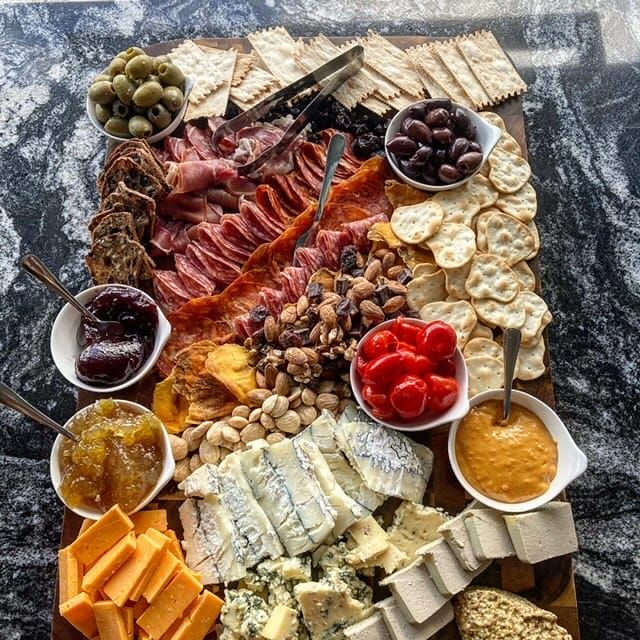
For the last 15 years or so I've been pursuing a culinary career, and it has been an interesting ride. Previously, I was a professional drummer. I was playing music, working in studios. I switched later. Being a Chef wasn't always the goal. But I'm glad I ended up where I'm at.
What was the biggest challenge you had to overcome?
Derek Upton: Until this day I miss playing the drums. There are occasions where I would much rather be playing than cooking. Luckily, I realized early on that art is art in all its forms, so that helped during the transition.
The biggest challenge that I faced while changing professions was changing the mindset and mentality. You get used to thinking about yourself in a certain way. You have habits that are hard to change.
When I became a Chef, I had to become somebody else and learn how to do everything in a completely different way.
After the initial adjustment period, cooking became a second language to me. It all set in naturally. After the years that I have spent in both industries I can say that I don’t miss the music industry at all.
What skills should young chefs develop?
Derek Upton: Young Chefs should focus on becoming well-rounded. They need to master the fundamental skills.
This includes being proficient on the grill and sauté stations, knowing how to cook different meats and seafood to the right temperatures, and understanding kitchen callouts.
These basics are crucial and will take you far in your culinary career.
What skills should you develop to be a successful Private Chef?
Derek Upton: I am going to be honest here. I had a cooking talent that helped me get really good really fast.
I trusted the process and didn’t rush to become a Chef, or a Private Chef and spent years being a Line Cook, worked in various restaurants and learned from different Chefs. Finding my voice as a chef, discovering my identity in the kitchen, and expressing myself on a plate has been a journey.

My culinary journey started quite late. There were 20-year-olds that were Sous Chefs already when I started out. I had to work a little harder than other people. I was working for younger people with more experience and learning all the time and even went to culinary school to get my certificate.
I knew that my path was going to be different, because I started off in a different way.
It took me many years to learn the professional foundation of being a chef. Once I found it, I mastered that. Then I started gaining a reputation and working my way up in restaurants, running kitchens. Things started falling into place when people started calling me for private events.
As a kid I used to love watching cooking shows. Now when I reflect on that I can say that I am living my dreams.
I am a person that loves being in front of other people entertaining them. I love the camera lights. This career choice was perfect for me. Social media played a significant role in my professional life. I started getting Private Chef calls while I was still working in restaurants. I tried keeping up with both jobs for a while, but it was difficult. Eveentually transitioned to the less chaotic portion where I was able to be my own boss.
It took me quite a while to get where I am now.
The secret to success is learning how to fall in love with hard times.
We all dream about instant success, but in real life it doesn’t happen overnight. You need to put in the work to get the rewards. Embracing this type of mentality did wonders for me and it might do a lot for you as well. You will learn how to become a better businessperson and a better Chef.
What are your tips for running a business?
Derek Upton: I would say that running a business these days is quite easy. You just need to dive into modern technology. There are many tools that can help you.
There is a tool for everything from invoicing to HR, website creation to artist showrooms. You can find tools that will help you with marketing until you can get professional help.
The internet is a beautiful thing if you know how to use it.
How important is mentorship & how can someone become your mentee?
Derek Upton: I think that I have had different mentors over the years. Those mentors were not necessarily involved in cooking. I have had a lot of mentors that have honed me into the person I am today.
Mentors are an important part of my culinary journey. With their help I learned what I want to be, and more importantly what I don’t want to be. I was privileged to have someone take me under their wing. People who have given me a lot of advice and who have shared their experiences.
You don’t have to have one mentor for a decade, you can have various people mentor you on different things. I believe that we can learn something from every person in our life.
If I am not in a room that is filled with people that can teach me something, I am doing something wrong.
If you want to grow and become better, you need to surround yourself with people that motivate and push you to become better every day.
I would say that the most important part about finding the right mentor is finding a person that resonates with how you live and your lifestyle.
I have not mentored anyone yet, but I would be open to that option. The only thing the person would need to do is reach out to me and ask.
What skills do you look for when hiring?
Derek Upton: I think that the key to finding a good employee is discovering who they are at heart. The goal is to find a good person. A lot of pf people are there just to collect the paycheck, and that’s completely OK, but it’s not my cup of tea. I want to find people that care.
I don't want someone to just show up for a paycheck. I want someone that's trying to do something for themselves for real. I want someone that's hungry for life and hungry for more out of life.
This mindset shows the person's work ethic. It will quickly tell if they have the drive. Our job as leaders is to provide them with tools and support that will set them up for success.
I search for people that are coachable, willing to take criticism, willing to take direction and grow, become better.
The last thing I want is someone who will take every feedback personally and consider it an attack.
How can we attract Gen Z to the culinary industry?
Derek Upton: I honestly believe that we have failed that generation. We keep on observing the differences in work ethics and their lack of willingness to join the industry, but we don’t bother to find out why.
We need to find out what the core issue is. We need to understand what is causing the disconnect between Gen Z and the rest of us.
We need to understand this to properly respond to why there are so many issues with this generation in the workforce. We don’t know why they are quitting randomly, why are they quite quitting, where are the ideas for outrageous salaries & benefits coming from.
We won’t be able to fix the problem until we understand the problem completely. Everyone is talking about Gen Z, but I don’t see people trying to figure out what is happening and saying this is how we can fix the issues.
What is your approach to leadership in the kitchen?
Derek Upton: My approach to leadership is mostly influenced by my experiences. Throughout my career, people often told me that I couldn't succeed. But my creativity and out-of-the-box ideas have always driven me. I lead in the same way, using unconventional methods that make sense for me.
I'm always rooting for the underdog because I was one myself. I look for the underdog in the room and focus on helping them grow, becoming more than they think they are.
Leadership is not about being in charge; it's about taking care of those you're in charge of. It's about showing them the way, not just telling them.
Mentorship and leadership go hand in hand for me. I believe that a true leader shouldn't ask their team to do anything they're not willing to do themselves.
I am trying to lead by example. I am trying to demonstrate the qualities I want to inspire in my team. My goal is to inspire them to be better, and while I may not always achieve this, I always try.
What is the one piece of advice you wish you knew before starting out?
Derek Upton: My advice will come in multiple layers, and it’s not the one thing I wish I knew. It’s rather the things I wish I knew before I started out.
Learn to embrace the days you hate! Love those mundane tasks and have the staying power to get through them because that work ethic will take you far.
Someone will notice your dedication to these seemingly small tasks and give you an opportunity that can change your life.
Also being coachable is crucial. Remember that in cooking, you're never done learning. Always be open to learning from anyone, as cooking is a continuous process with endless perspectives. Focus and passion are key.
You have to truly want to be a chef and love everything about it to succeed in this business. You need to know how to accept everything, from the good days to the bad, including getting yelled at, nearly cutting your finger off, or dealing with annoying colleagues.
Push through the tough times because they are far outnumbered by the good days. The ability to persevere and self-reflect will take you a long way.
How to stay on top of culinary trends?
Derek Upton: Any modern Chef needs to stay on top of culinary trends. This is especially important for every Private Chef. They need to be well-versed in dietary requirements and allergies, and they must make it a part of their daily routine. This should be a part of your nature, and it should be considered in every meal that you prepare.
Staying on top of culinary trends is easy today. Stay connected with relevant people on social media. By observing what others are doing and integrating those ideas into their own work, Chefs can be following trends. Being connected locally to food websites and social media helps you stay informed about regional trends and expand your reach as well as opportunities.
How to achieve work-life balance in a culinary career?
Derek Upton: Achieving work-life balance in a culinary career is challenging, especially for salaried Chefs like Sous Chefs or Executive Chefs, due to the high demands of the job. Many chefs work long hours, often seeing their kitchen family more than their real family.
This lack of balance was a key reason I became a Private Chef, allowing me to create a life with more balance. If you’re a Line Cook happy with set hours, that’s great, but high-level chef positions often require all your time and energy.
Ultimately, balance is about knowing your goals and being realistic about what it takes to achieve them.
For me, it meant choosing a path that allowed for personal well-being over constant work.
Derek Upton: From Drummer to Private Chef
Derek Upton’s journey from drummer to Private Chef just proves how powerful following your passion and embracing change can be.

His story shows that with dedication, hard work, and a willingness to learn, you can create a fulfilling career in the culinary world. Whether you're a young Chef starting out or an experienced professional looking for a new path, Derek's insights offer valuable lessons on achieving success and finding balance in the demanding culinary world.
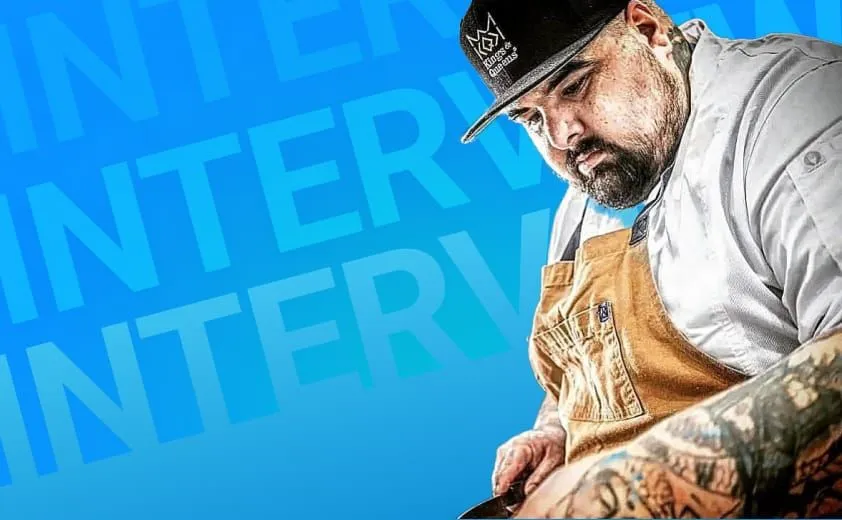

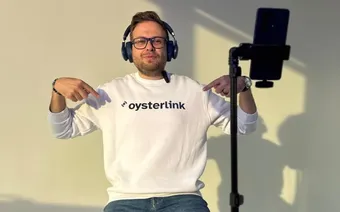
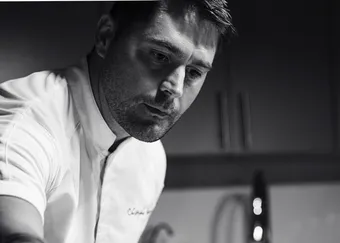
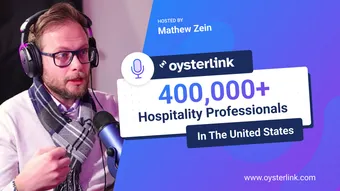
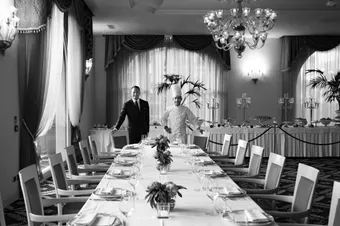
Loading comments...